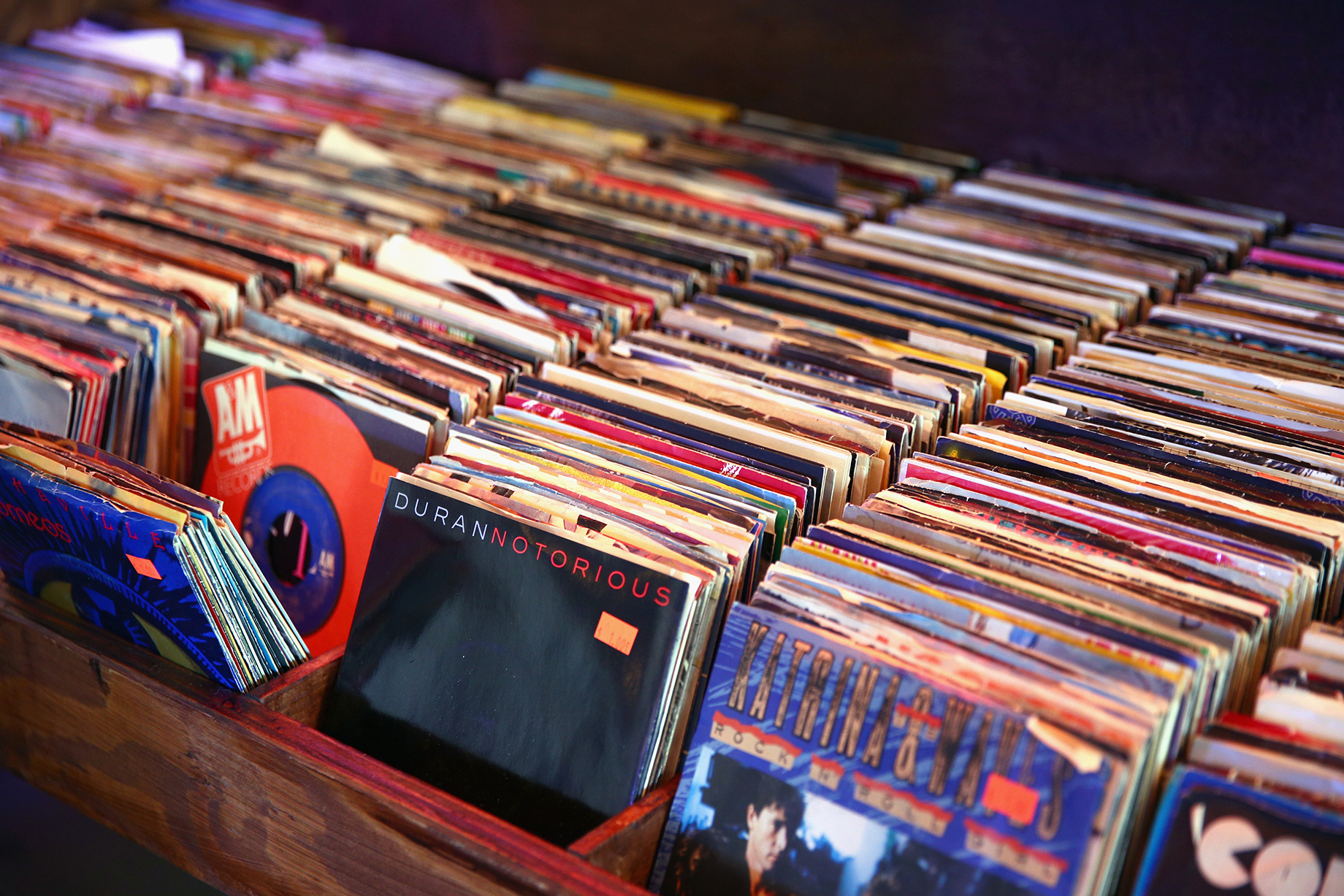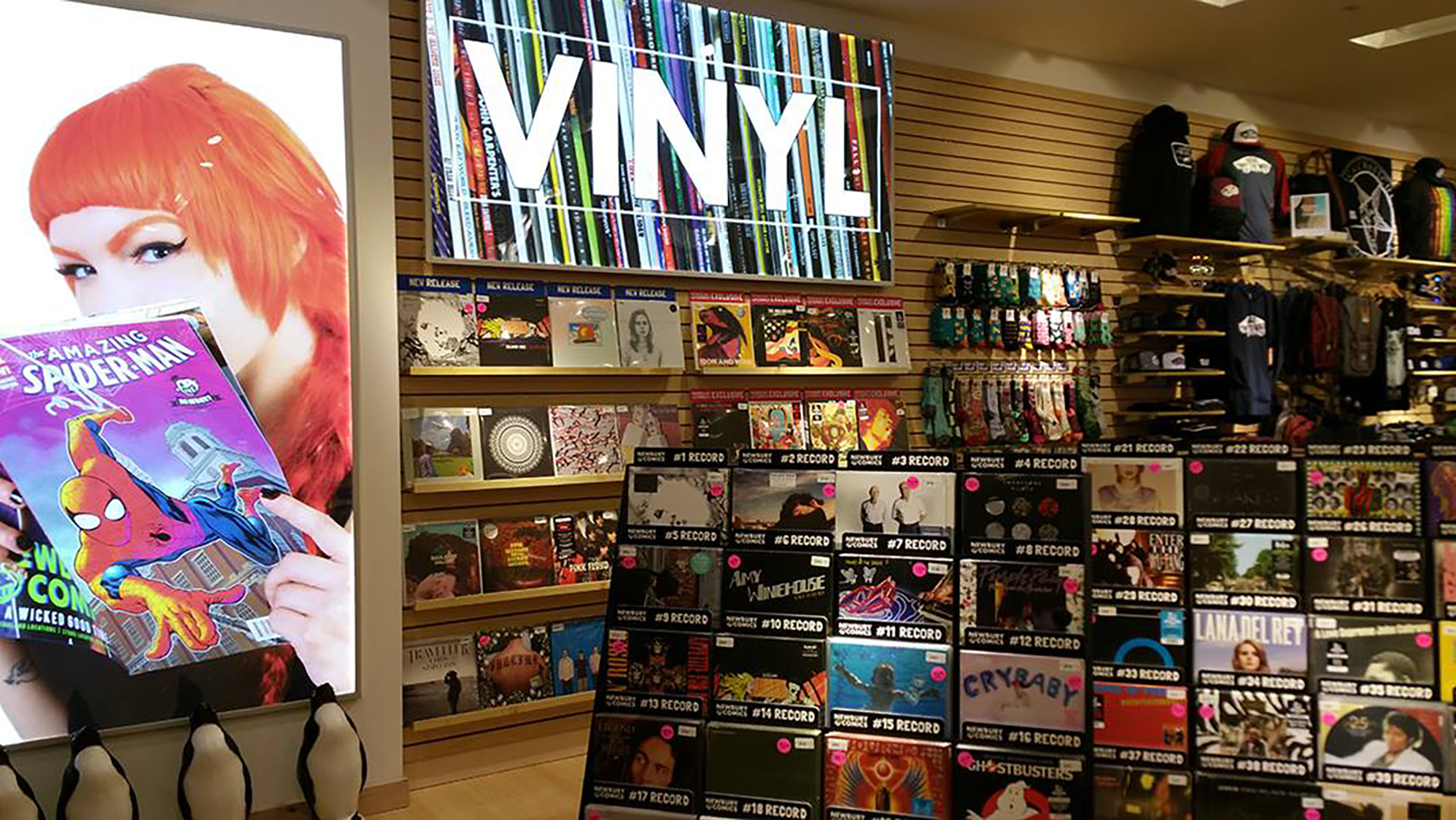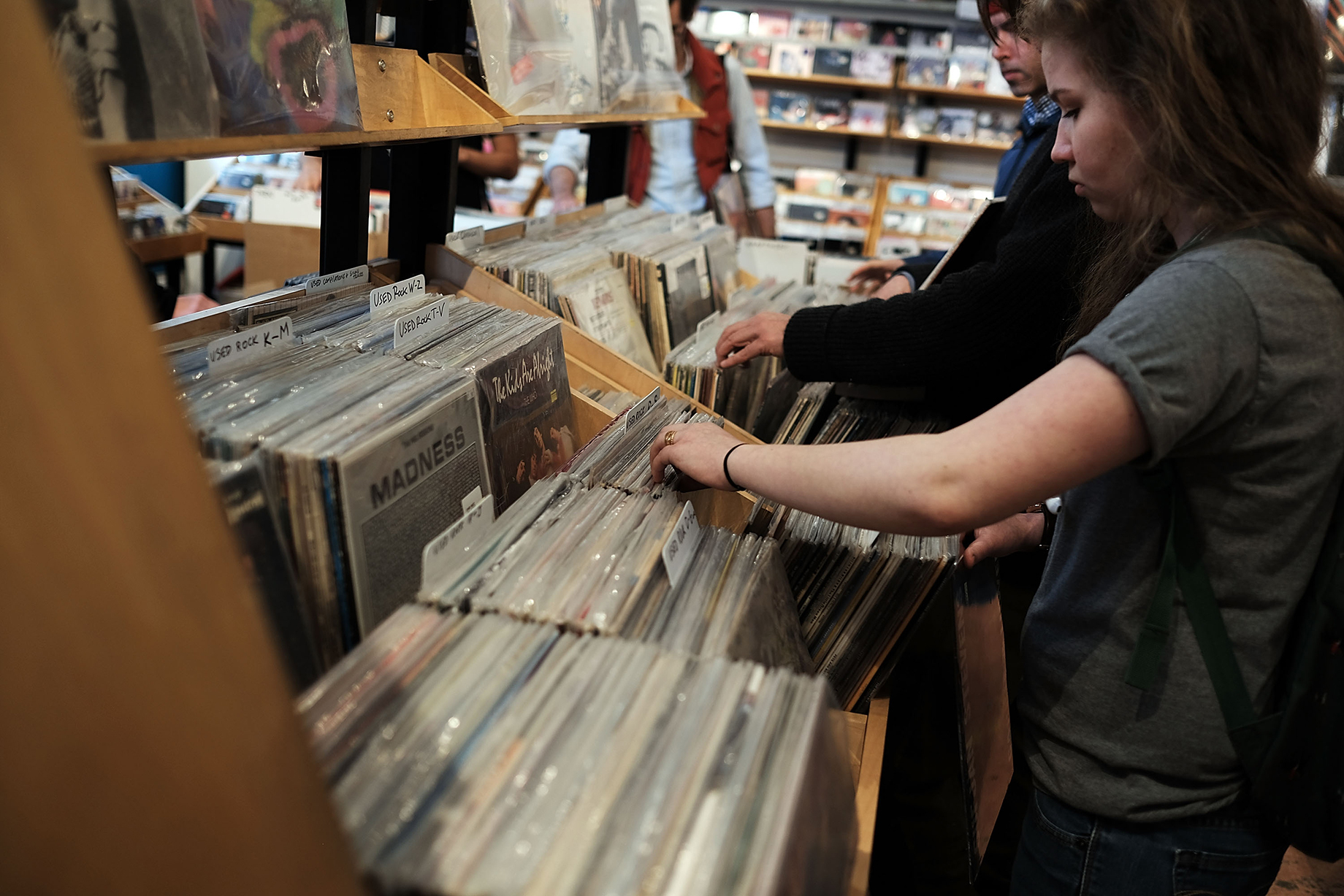There was a time when nearly every mall contained a record shop — until about a decade ago, when they vanished virtually overnight.
Though the shift to online music consumption spelled doom for mass-market giants like Sam Goody, Tower Records and Virgin Megastore, many mom-and-pop shops pressed on. Today record shops are again on the ascendant, thanks to a resurgence in the sale of vinyl records.
Sales of LPs (as the long-playing vinyl record albums were called), which had become nearly obsolete in the early 1990s, have recovered from fewer than 1 million units per year in 2005 to upwards of 14 million in 2017, according to Nielsen Music. Urban Outfitters, which began stocking vinyl at its stores in the 2000s, can claim some of the credit for this trend: In 2014 it was the second-largest seller of vinyl in the U.S., behind Amazon.com. Others — Dillard’s, Guitar Center and Whole Foods — have since made shelf space in their own stores for LPs.
But it is the smaller, regional players that have led this resurgence of the dedicated record shop — venues for a format that holds a special place in the heart of any music lover who came of age in the days before Spotify and MP3s. These include Rasputin, which has expanded from a single flagship in Berkeley to encompass 10 shops across the California Bay Area; and Bull Moose, which operates 12 shops across Maine and New Hampshire.

There are currently about 2,000 independent record shops across the U.S., said Ken Glaser, vice president of sales at Sunrise, Fla.–based Alliance Entertainment, the country's largest distributor of vinyl records and CDs. “Over the last four to five years, record stores are popping up everywhere,” Glaser said.
Many point to Record Store Day, an annual promotion introduced in 2008, with having revived the once-moribund sector. Each year on the third Saturday in April, music fans turn up in droves to catch in-store performances and to buy exclusive, limited-edition releases created specifically and especially for the day. The promotion started out at some 200 U.S. shops and now counts roughly 1,600 participating retailers across six continents.
“It’s created a second holiday season,” observed Bull Moose CFO Chris Brown, who dreamed up Record Store Day through a 2007 e-mail thread. “For a lot of stores, Record Store Day is their busiest day of the year.”
“As the mall stores went away, the smaller indie stores diversified their offerings”
Vinyl is hardly the only tool record shops have leveraged.
“As the mall stores went away, the smaller indie stores diversified their offerings,” said Ed Christman, who covers the music business for Billboard. “They were creating music lifestyle stores. In addition to vinyl and CDs, they sold tchotchkes and T-shirts and head-shop-type stuff.”
One chain that has found success with this formula is Brighton, Mass.–based Newbury Comics, which opened as a comic-book shop on Boston’s Newbury Street in 1978 before shifting focus to music, in the 1980s.
“Nowadays we consider ourselves a general pop-culture retailer, of which music is an important segment, but only a segment,” said Newbury Comics COO Duncan Browne. “It’s a multi-legged stool upon which we stand. We don’t have more space devoted to music than we do to toy figures these days.”

Newbury Comics sells records and other 'general pop-culture' merchandise
Newbury Comics, which currently operates 28 stores across six Northeast states, is also shifting its real estate focus from strip centers and urban storefronts to regional malls. “We are no longer as much of a destination retailer as we were when we were selling 10,000 Beastie Boys CDs on the first week of release,” Browne said. “We decided [that] instead of eyeballs coming to us, we should go where the eyeballs are.” The chain has also opened three New York stores since 2016, marking its initial foray outside New England. “If we wanted to grow or sustain, we needed to go beyond that geographic area,” Browne said.
Also in growth mode is Ancaster, Ontario–based Sunrise Records, which ballooned from fewer than a dozen shops to roughly 80 last year, after rescuing HMV’s Canada portfolio from liquidation.
“When our owner spoke to [me] and our VP [of] purchasing about taking over so many locations, we agreed to do [only] 40 [in] total,” said Chris Dipardo, Sunrise Records’ vice president of operations. “The malls all wanted us to take more, and the 40 turned into 76. We are restructuring our deals as renewals have come up, and the properties have been very supportive of [our] doing so.”

Though some existing stores were sacrificed in the transition, Sunrise has plans to expand further within Canada this year and is exploring options in other countries as well. “We are open to any opportunity, if the deal is right,” Dipardo said.
While Sunrise and Newbury have successfully defied the odds, growth stories like theirs are rare, cautions Christman. “Are record stores gonna come back to where they used to be? No. It’s a niche business now.”
But having already withstood a precipitous decline, record shops have proved to be resilient and creative in securing their own survival. In a logical extension of its brand, San Francisco–based Amoeba Records opened a marijuana dispensary adjacent to its Berkeley store. “Music has always been a part of cannabis, and cannabis has always been a part of music,” Amoeba curator Chris Garcia told Billboard. The company is predicting that the dispensary will gross about $10 million in sales per year — about double what the next-door record shop grosses — and is hoping to expand the concept to its stores in Los Angeles and San Francisco.
By Jesse Serwer
Contributor, Shopping Centers Today


